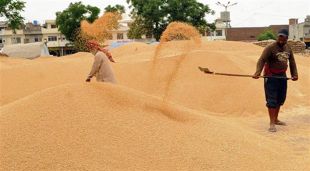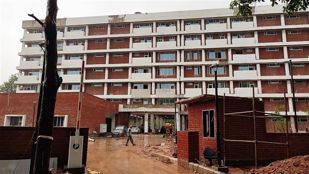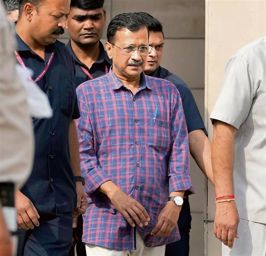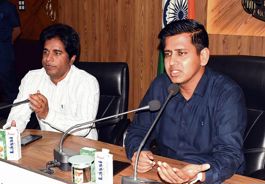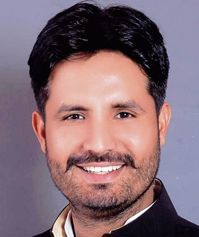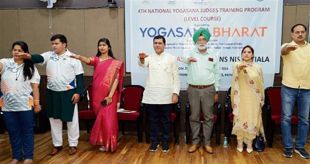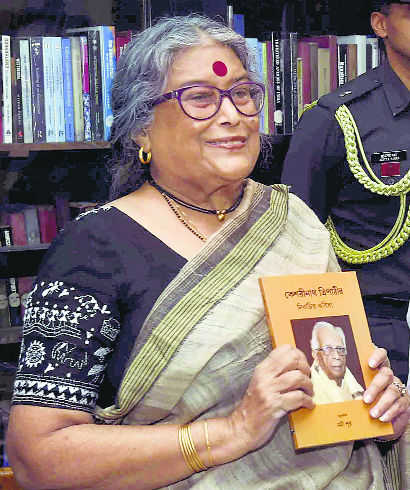
Eminent litterateur Nabaneeta Dev Sen died on Thursday after a protracted illness. File photo: PTI
Ranjita Biswas
She called her home ‘Bhalo-Basa’— love in Bengali. It reflects a belief Nabaneeta Dev Sen held dear to her heart. Love for people, love for the creative world, love for life. Her oeuvre covered many fields, like her personality — an academic par excellence, poet, travel aficionado and feminist. In all her writings there was a special touch — a joie de vivre that even prolonged illness towards the end of her life could not suppress. In her last piece in a Bengali publication before she passed away, she wrote, “So what if I have cancer...It has settled down like bad luck in so many households. Why should there be outpouring of grief for octogenarian Nabaneeta?”
But grieve we are doing at this moment for the loss of a writer and a lovely woman in every sense. Who could help being touched by her personality imbued with a childlike quality, despite her formidable academic credentials, a Sahitya Akademi award and Padma Shri in her kitty to boot? And her sense of humour and innate belief in goodness of human beings?
In the foreword of her collection of travelogues (Bhraman Samagra, Volume II) where she describes many of her (mis)adventures and the absolute chutzpah about travelling to unknown places, sometimes decided on the spur of the moment, ignoring well-meaning concerns for her safety, she writes, “I deeply believe in the basic goodness of human beings...[I have travelled in all these lands] relying on the love of people.”
In this collection in the opening chapter Truckbahone McMahon (to the McMahon line on a truck) she describes her travel in Assam in 1977, as a chief guest at the Asom Mahila Sahityk Sanmelan (women writers’ conference) in Jorhat in upper Assam.
She talks about the women writers of Assam, how many of them were poets and yet, even readers in neighbouring Bengal did not know much about them, and the wonderful hospitality there. She decided to go to Tawang in Arunachal Pradesh on an impulse.
The McMahon Line was drawn by the British as a border between China and India and hence the title of her travelogue. She even learnt Assamese to translate poems by well-known Assamese poets like Nirmal Prova Bordoloi, Nabakanta Barua, etc. Later she was chief guest at the prestigious Assam Sahitya Sabha in 1995 and expressed her love for Assamese literature.
Perhaps it was this connection that Nabaneeta Di, as we all called her, made her remember me whenever we met at literary meets despite being surrounded by her wide circle of friends and colleagues. I was new to Kolkata then coming from Assam but when she came to know that I translate fiction from Assamese, she talked with great warmth about Assamese writers she was friends with.
At Soi mela too Nabaneeta Di would welcome me with her 100W smile and ask about my work. She was the president and brain behind Soi, Women Writers’ Association of Bengal. Soi, the Bengali word, meaning sakhi refers to a special bond among women friends — confidants, friends in need, all rolled into one. Talking about why the name ‘Soi’ in the 2014 meet, she elaborated, “Let’s just say that within the creative field of writing we women have special concerns and some special ways of telling our stories.” As a writer on women and gender issues, it created another bonding for me.
Nabaneeta Di had been ailing for some time and so we did not disturb her by visiting but she was always with us — through her columns, her travelogues, her poems. We all miss her terribly. But when you think of how she lived her life, drinking life to the lees, you recall the Chinese poem:
“Deep in the water in the
Peach blossom spring,
Deeper still in our heart’s feeling
When good friends are leaving.”
— The writer is a Kolkata-based journalist, author and translator





















